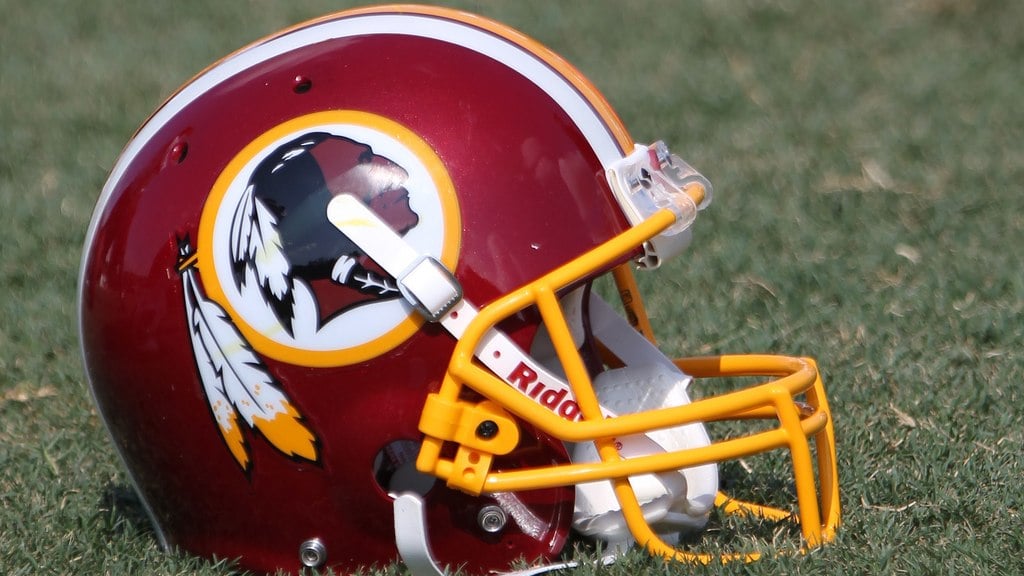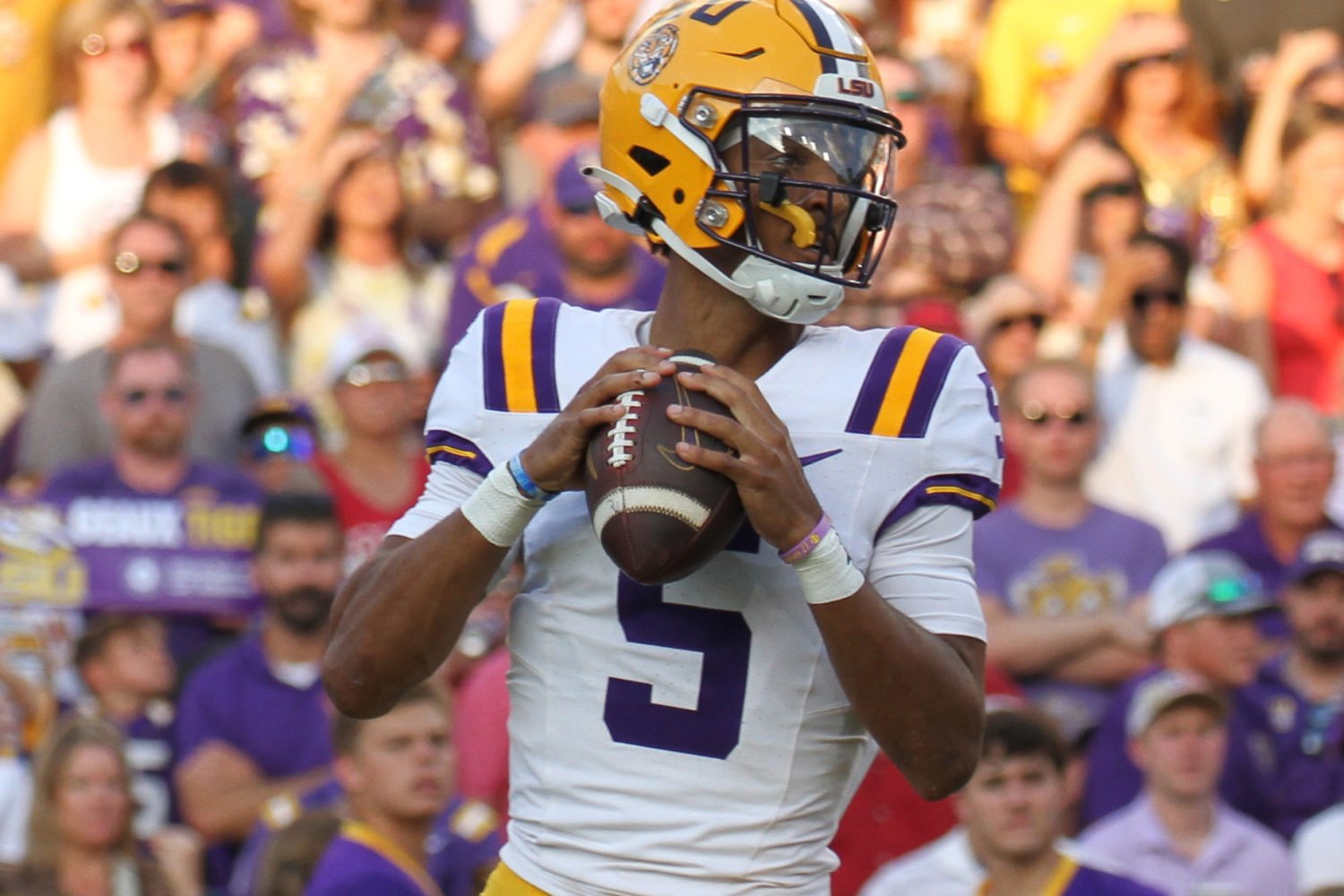The number of major sports teams with glaringly racist mascots is going to drop by one in 2019. The Cleveland Indians announced Monday that they are discarding their Chief Wahoo logo—a red-faced cartoon with a toothy smile and feather headdress—for good next year. It’s a long overdue move for baseball, but it also leaves Washington’s professional football team increasingly isolated in the universe of franchises with ugly, dated traditions mocking Native Americans, and reinforces how far the NFL is willing to go to condone it.
Cleveland’s move, which was first reported by the New York Times, came after Major League Baseball Commissioner Rob Manfred nudged Indians’ ownership to do away with Chief Wahoo, which had been part of the team’s iconography and fan culture since 1947. The Indians and their fans had been gradually diminishing the logo’s use over the past few seasons—a process referred to as “de-Chiefing”—but it remained quite prominent as an arm patch on the team’s jerseys and in decorations around the stadium. After the upcoming season, though, the Indians will strip it from their uniforms and scrub it from the decor at their ballpark.
The Indians, Manfred told the Times, “ultimately agreed with my position that the logo is no longer appropriate for on-field use in Major League Baseball.”
As long as it took for MLB to get to Manfred’s new outlook, it leaves baseball on on the better end of a stark contrast with the NFL and its team in Washington, which uses as its name a dictionary-defined slur against Native Americans. The team is—legendarily at this point—unyielding in its refusal to consider a rebranding; owner Dan Snyder‘s insistence that it will “NEVER” change its name is a quick Google search away.
But more than the bellowing from Ashburn, the Washington team’s name is also defended and protected by the league itself. NFL Commissioner Roger Goodell has backed up Snyder’s position on-the-record several times in the past few years. Sports commissioners serve at the pleasure of their leagues’ team executives, but once in a while, they do appear to act in the interest of their games and not of the owners. Consider NBA Commissioner Adam Silver‘s forcing a fire sale of the Los Angeles Clippers after the release of an audio recording of then-owner Donald Sterling making virulently racist remarks. Manfred, who succeeded longtime MLB Commissioner Bud Selig in 2015, appears to be trying to reduce some of baseball’s more regressive elements with this Cleveland news. The NFL did not respond to questions if Goodell’s position on the Washington team has changed at all.
The Indians dropping Chief Wahoo doesn’t end sports-mascot racism by a long shot, of course, not even baseball. The Atlanta Braves still sport uniforms with a stylized tomahawk, and during games encourage their fans to do a tribal-sounding chant and arm wave called the “Tomahawk Chop.” (MLB’s news about Chief Wahoo does not address anything about Atlanta.)
But the Washington NFL team looks ever more alone in its obstinacy. Still, even one major sports team dropping a racist mascot, however gradually, is cause for Native activists to celebrate.
“Cleveland’s decision should finally compel the Washington football team to make the same honorable decision,” reads a statement from the Oneida Indian Nation in Upstate New York, which has been waging a publicity campaign against the team’s name since the 2013 season. “Washington Owner Dan Snyder needs to look at Cleveland’s move and then look in the mirror and ask whether he wants to be forever known as the most famous purveyor of bigotry in modern sports, or if he wants to finally stand on the right side of history and change his team’s name. We hope he chooses the latter.”



















